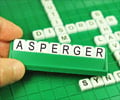Mistakes committed, which cost us dearly, like deleting important files or leaving gas open, trigger specific reactions in the brain
Mistakes committed, which cost us dearly, like deleting important files or leaving gas open, trigger specific reactions in the brain.
According to the published work of US scientists in the Journal of Neuroscience, one area becomes more active after "costly" mistakes. This may help understand OCD better.The study examined the brains of 12 healthy adults using a functional MRI (fMRI) scanner while they were undertook 360 computer tests, such as spotting the odd one out or picking pairs of letters.
Succeeding at some carried a small financial reward, while failing at others incurred penalties. Others carried no reward or penalty.
The methodology was to tell people were told they had a $10 (£5.70) "credit" to begin, and that they would receive real cash depending on their balance at the end.
The response to a mistake that cost them money was seen to be greater than the response to other mistakes and involved a part of the brain called the rostral anterior cingulate cortex (rACC).
Stephan Taylor, lead researcher, said: "It's very interesting to us that the same part of the brain that responded in our OCD study on regular, no-cost errors also responded in healthy individuals when we made the error count more. It appears to us so far that OCD patients may have a hyperactive response to making errors, with increased worry.
 MEDINDIA
MEDINDIA
 Email
Email






